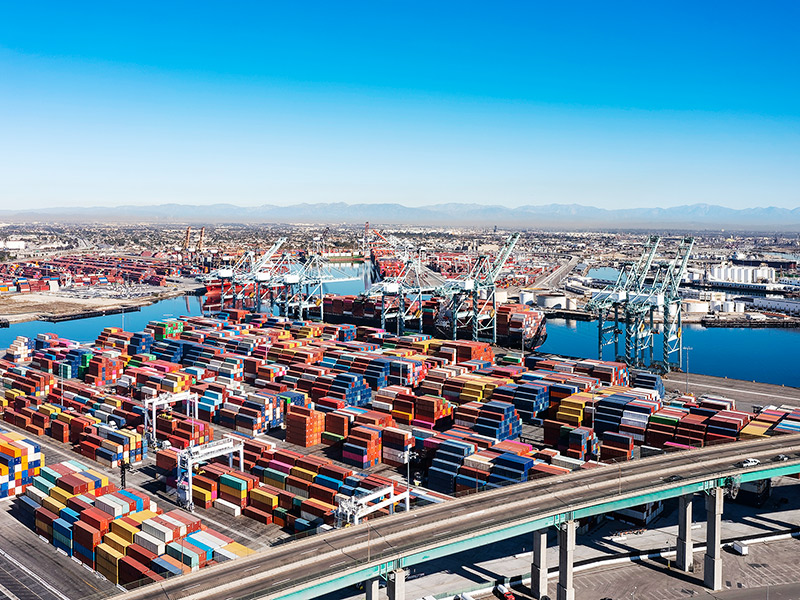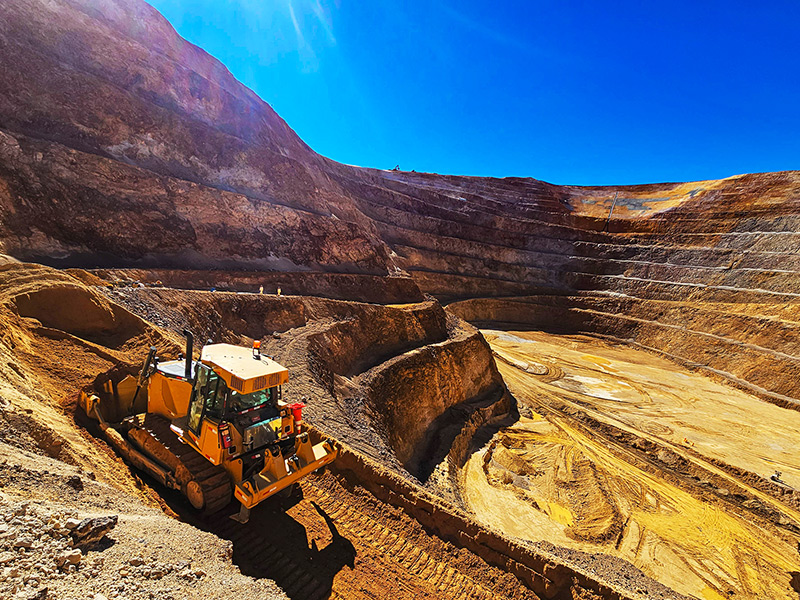
iStockphoto / ipopba
Chinese online retailer JD.com recently launched the first fully automated warehouse, where only four employees are needed to do work that previously required 400. Forty German supermarkets tested using facial recognition technology to serve personalized advertisements to customers waiting in checkout lines. Two hundred ninety companies have committed to ensure 100 percent of their plastic packaging can be reused, recycled, or composted by 2025.
As the signals of change above show, retail is changing in complex ways, and the future will look quite different from today. We need to prepare now for new challenges—such as job loss due to automation and ethical concerns related to artificial intelligence (AI)—but also for new opportunities to drive more sustainable consumption patterns, promote diversity and inclusion, and meet emerging consumer needs.
The future is not pre-determined. As we seek to shape a better future, it is important to both understand current trends and be attuned to signals of change that suggest new and emerging possibilities. Here are five constellations of trends and signals we’re monitoring that any retailer should consider as it thinks about the future.
The Workforce of Tomorrow
Automation, demographics, and wages are driving change in the retail worker landscape. While income inequality in Europe is generally lower than in non-European countries, focus remains on wage initiatives such as the U.K.’s Living Wage Foundation and IKEA’s living wage commitment. In contrast, in the United States, worker pay is stagnant and income inequality is at record high levels. National legal systems are also increasingly adopting gender pay laws, including the U.K., Iceland, and the Netherlands, to document and reduce the gender pay gap. In addition, automation is poised to significantly disrupt retail. McKinsey and PwC estimate that 62 million jobs in Europe’s five biggest economies can be automated, with retail being approximately 20-30 percent by 2030. Due to aging populations and declining birth rates, AI might, however, make up for productivity shortfalls mitigating technical unemployment.
Smart Everywhere
Virtual reality (VR) and augmented reality (AR) are enabling retail companies to immerse customers in highly personalized interactions and bring the retail experience closer to home or anywhere their consumers are connected. The majority of retailers are already implementing or planning to further invest in mixed reality. By 2021, nearly 79 percent of retailers will be able to customize the store visit for customers as a majority of them will know when a specific customer is in the store. AI is enabling companies to better anticipate consumer preferences and is already capable of improving demand forecasting up to 50 percent.
The Social Life of Business
Corporate activism is on the rise, with issues such as refugees and immigration, LGBTIQ+ rights, and the climate crisis drawing public commentary from thousands of executives, companies, and their employees. Brands from Primark to Starbucks are supporting various causes through their products, marketing, or commitments such as IKEA’s Refugee Employment Program. In Deloitte’s Millennial Survey 2018, three-quarters of the young workers interviewed see businesses around the world focusing on their own agendas rather than considering the wider society, and climate tops the list of issues where they expect business to take action. According to FleishmanHillard, two-thirds of consumers said they’ve already stopped using a company’s products or services because that company’s response to an issue didn’t comport with their own views.
Successful business—and the well-being of people and the planet—will depend on developing new strategies for the future that not only account for the profound changes underway but can also imagine transformative new opportunities to create a more just and sustainable world.
Over There Is Now Here
Western democracies are being challenged by the rise of populism, cultural nativism, and economic nationalism, and in response, international cooperation on global challenges is being undermined. On the other side, global grassroots movements for the climate and just capitalism are growing particularly among youth. In March, climate strikes around the world gathered hundreds of thousands of students. Disruption requires that companies constantly evaluate their short- and long-term sourcing options, both locally and globally. Climate change has the potential to critically disrupt the supply chains for important commodities like coffee and vanilla. Over 500 companies have committed to set science-based targets (SBTs), which require inclusion of Scope 2 and 3 emissions—increasing focus on supply chain climate impacts. Automation can provide significant costs savings on labor compared with offshoring to low-cost economies, and it is poised to lead to the reshoring of production and significant job losses in the supply chain.
Race to Stay Within Planetary Boundaries
The urgency to act on climate change has significantly increased this year, following recent reports from the Intergovernmental Panel on Climate Change (IPCC) and the Stockholm Resilience Institute that warn that 1.5 degrees, not 2 degrees, is the upper limit for warming if we are to avoid catastrophic impacts. The European Union (EU) aims to achieve carbon neutrality by 2050. In 2018, it aligned its ambitious Circular Economy Plan in a Memorandum of Understanding with China. California, the world’s fifth largest economy, declared its ambition in late 2018 to achieve carbon neutrality by 2045. In the meantime, plastics has become a hot button issue, both single use plastics such as straws as well as microplastics, which have been found in everything from fish to bottled water to table salt.
The European Parliament has voted for a complete ban on a range of single-use plastics across the union in a bid to stop pollution of the oceans. Other waste bans, e.g. on microplastics, are likely imminent. At the same time, the EU is considering a law for the ‘right to repair,’ forcing manufacturers to make repair accessible for all their products, either at repair shops or in their own stores.
From automation to climate impacts to social values, a diverse set of powerful and complex interacting forces are changing the retail and consumption landscape. However, it’s not enough just to read about these changes. Successful business—and the well-being of people and the planet—will depend on developing new strategies for the future that not only account for the profound changes underway but can also imagine transformative new opportunities to create a more just and sustainable world.
The most effective way to do this is using strategic foresight—a structured approach to exploring multiple future possibilities, clarifying the better future we’d like to shape together, and creating a roadmap to get there. For more information about BSR’s new strategic foresight offerings, please contact the BSR Sustainable Futures Lab.
Topics
Let’s talk about how BSR can help you to transform your business and achieve your sustainability goals.









